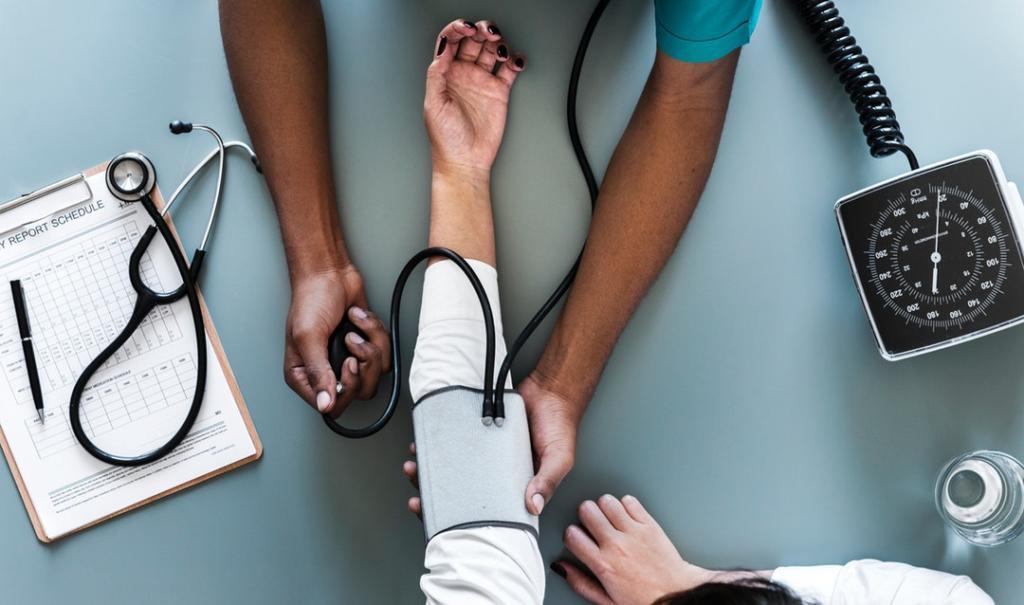Medical Error Is The 3rd Leading Cause Of Death In The US. Here's Why It's Happening.

Medical error is preventable and leads to injury and death of patients far too often. Learn how and why it happens and what can be done about it.
You tell your doctor on two separate occasions that you are experiencing significant pain in your upper back. And both times, he sees nothing that could be causing your problem, so he sends you home with some pain medication.
The next day, though, your pain has worsened. On top of this, you start to develop weakness and numbness in your leg. You eventually lose feeling in your legs altogether.
Another doctor finally diagnoses you with what’s called a spinal epidural abscess. At that point, you undergo surgery to have the abscess removed.
The good news? The cause of your pain is gone.
The bad news? You’re now facing extensive physical therapy due to the first doctor’s medical error. And your life will forever be changed.
Unfortunately, you’re not the only person going through this.
Research shows that medical mistakes now constitute the third most common cause of death across the United States. That means they have surpassed diabetes, strokes and Alzheimer’s.
Medical errors may occur in just about any health care setting. These include the following:
- Clinics
- Hospitals
- Medical offices
- Pharmacies
- Surgery centers
- Nursing homes
- Patients’ own homes.
Here’s a rundown on why medical errors are such major issues today.
Let’s get started!
Examples of Medical Errors
Medical errors can take many forms.
For instance, a doctor might diagnose you with an incorrect condition or illness. As a result, you might receive the wrong treatment, which may cause you even more problems.
In other situations, physicians tell patients they don’t have serious conditions, even though they actually do have major medical problems. In other words, they are failing to diagnose their patients’ conditions.
In these situations, the patients’ conditions can quickly worsen. This may lead to permanent health issues.
Unfortunately, medical errors can cause not only physical problems but also emotional and mental damages. For instance, if you become paralyzed due to a medical error, your mental health can quickly decline.
Let’s take a peek below at some of the most common causes of today’s medical errors — and what you can do about them.
Prescription-Related Errors
In many cases today, physicians don’t prescribe the correct medications or dosages. This is a training issue (more on that later).
In addition, sometimes their prescriptions are illegible, so nurses end up reading them incorrectly.
Another common prescription-related medical error? Pharmacies read prescriptions correctly but fill them incorrectly.
To combat the second abovementioned issue, more doctors are sending their prescriptions electronically versus writing them by hand.
To remedy the third issue mentioned above, robots may become increasingly useful for filling prescriptions. After all, they’re less prone to making mistakes.
Communication Issues
Communication breakdowns are yet another leading cause of errors in the medical field.
These breakdowns can occur in either written or verbal communication. Also, they can easily happen among doctors, nurses, health care team members and patients.
Human, Technical and Policy Issues
Human issues are also causing many of today’s medical errors.
When we say “human issues,” we’re talking about medical professionals’ failure to follow care standards, processes, procedures or policies efficiently or properly.
Examples of human issues are poor documentation or inadequate specimen labeling. Inadequate staffing can also be an issue, as overworked staff are more at risk of making dangerous medical mistakes.
In addition, doctors and other medical care providers may simply lack the knowledge they need to provide appropriate care in a given situation.
It’s critical that staff have the appropriate postsecondary training for their roles. But they also need to complete refresher courses and training sessions. That’s the only way they’ll stay current in their specialty areas.
If doctors wish to transition into another area of the medical field or do another kind of surgery, they absolutely must complete the appropriate training.
Along with human issues, technical issues can result in serious medical errors. For instance, medical devices, equipment, implants or grafts may fail or cause complications.
In some cases, the culprit is the lack of adequate policies and procedures altogether.

Organizational Knowledge-Transfer and Information-Flow Problems
A number of today’s medical errors additionally stem from a lack of training for temporary workers or new employees, too. Thus, it’s paramount that the knowledge of experienced staff is transferred to inexperienced staff before they start caring for patients.
Also, if patients are transferred from one facility to another, it’s paramount that their relevant information goes with them.
The proper flow of patient information is necessary in all health care settings, particularly within various service areas. If information doesn’t flow properly, three things can happen — none of them good.
First, doctors won’t have the information they need to make informed prescribing decisions.
Second, doctors won’t have the important test results needed to make decisions.
And finally, medication orders will be poorly coordinated when care responsibilities are being transferred from one party to another.
Patient-Related Problems, Including Poor Patient Supervision
Let’s say that your doctor inappropriately identifies or assesses you. These mistakes can quickly cause you serious medical issues or even death.
In addition, in many cases, patients who are placed in hospitals are not given the supervision they need. For instance, the facilities might have volunteers or students stand in for absent nurses.
When hospitals negligently fail to monitor their patients properly, their patients face a higher risk of suffering injuries.
Another commonly overlooked patient-related issue that results in medical errors is doctors’ failure to obtain patient consent.
Hospital staff and doctors must give their patients — or their families — information about the treatment procedures that the patients need. Only then can the patients and their loved ones understand the potential risks of the procedures.
If a procedure comes with high risks, a medical care provider must then obtain consent from the patient and the family before completing it.
If you as a patient go through a procedure that you did not consent to and it causes you harm, you can seek justice by filing a medical malpractice lawsuit against your care provider.
Digging Deeper
Sometimes the cause of a medical error isn’t a doctor’s lack of knowledge or their inability to communicate, for example. Instead, the problem might be the doctor’s inability to concentrate.
The grim reality is that doctors are oftentimes reluctant to pursue mental care for themselves for suicidal ideation and depression. After all, they may worry that this will keep them from being able to renew their licenses.
Licensing boards at the state level generally have good intentions when interviewing doctors. However, their questions may deter doctors from seeking care.
Such questions include the following:
- Does the condition of your mental or physical health currently impair your ability to perform your job safely and skillfully?
- Have you suffered from depression or received treatment from it in the past?
Rather than seeking care, some doctors suffer in silence. And as a result, their patients suffer along with them due to medical malpractice.
Other Medical Error Causes
Some other reasons behind today’s high number of medical errors include the following:
- Insurance networks that are fragmented
- Underuse or lack of medical safety nets
- Variation across doctors’ practice patterns
Still other causes of health care errors are medication mix-ups and even computer breakdowns that aren’t resolved in a timely manner.
The Data Problem
Experts say that although we know that medical mistakes are a huge problem today, we don’t have data on these errors like we should. That’s because our current system for reporting on medical errors in the United States could be better.
The truth is, medical errors aren’t cited as one of the causes of patient death among the ICD codes.
As a result, medical errors aren’t mentioned on the CDC’s yearly list of the most frequent causes of patient death.
In turn, medical errors aren’t given the national research attention they need.
In today’s culture, more emphasis has been placed on pinpointing who to blame for problems instead of seeking solutions. Thus, it may come as no surprise that little has been done to investigate strategies for decreasing systemic medical mistakes and how they impact patient mortality.
Patients today must push for improvements in medical error-related data collection. The more they do this, the more improvement we may see in this area in the years to come.
How We Can Help
If you’ve been injured due to a negligent doctor’s error, it is within your rights to seek damages. And that’s something we can help with.
A medical malpractice case can be complicated, but our years of experience can help you to navigate the process. And with our help, you can increase your chances of being awarded damages.
Shouldn't YOU Have The Best Liked Lawyer, Too?

"Hiring Scott was one of the best moves I have made in my life....5 star first class act who really knows his stuff."
Call Now.
Get in touch with us today to find out more about your legal rights if you have suffered harm as a result of a preventable medical error. Call us at 312-500-4500.


